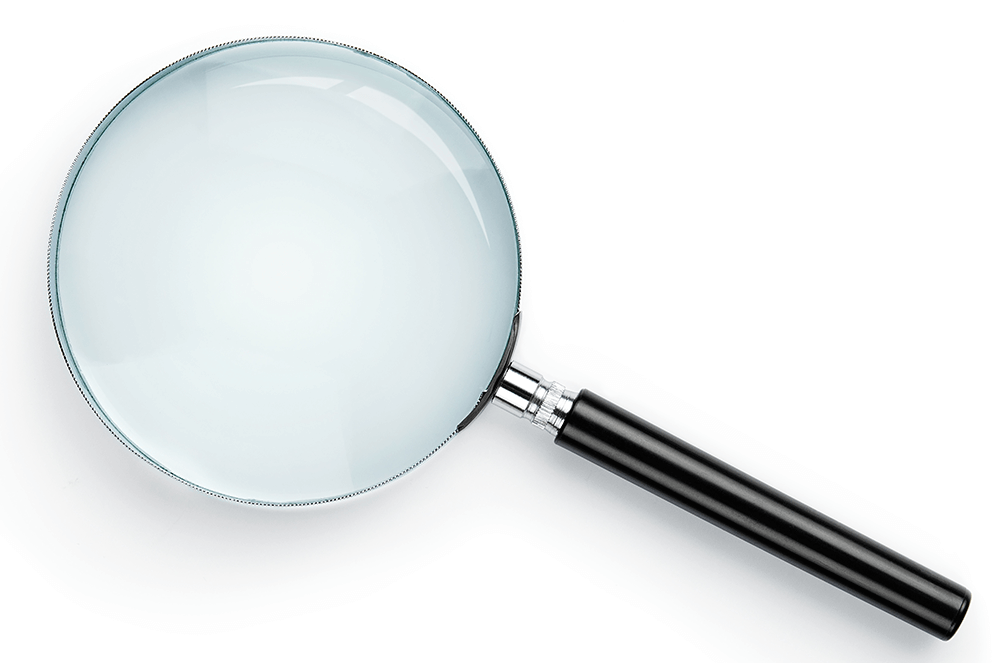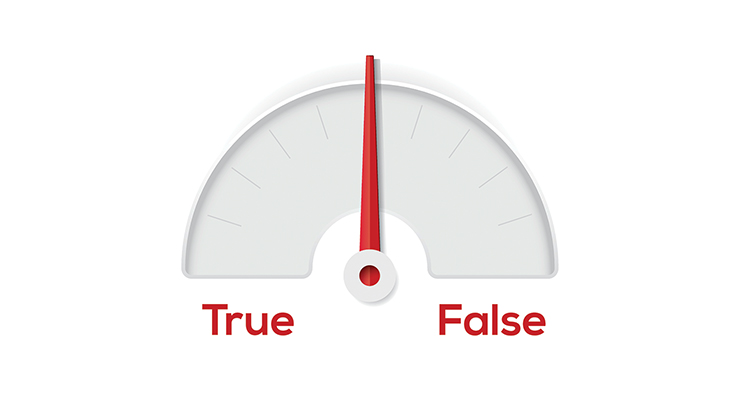As speakers, our credibility is key. How can we hope to inspire an audience if they question whether we’re believable?
When we misquote a source or misrepresent facts or statistics in a speech, even unintentionally, our credibility takes a hit. The damage is magnified, and we shed doubt on the rest of the facts in our speech. As speakers, we have to be able to stand behind our words.
You want to be believed. Errors, misrepresentations, or embellishments will undercut your credibility—in the present and future.
Naomi Rhode, a past president of both the National Speakers Association and the Global Speakers Federation, speaks passionately about the privilege of the platform. Rhode explains that when we present a speech, the focus should not be on ourselves but on benefiting our audience, who will in turn use the information to shape their world.
“We all have platforms,” Rhode says. “Parents have an immense platform … molding the next generation.” Whether you speak from a podium or lectern, on a factory floor room, or kindergarten classroom, you have a platform. As Rhode notes, “With this privilege of the platform comes a responsibility. We can deeply impact our audience for positive change.”
Build Your Credibility
It happens in courtrooms: Expert witnesses arrive with titles and credentials that establish their credibility. Yet if inaccuracies are uncovered in their testimony, their integrity is called into question. If a jury finds that an expert witness has misspoken the truth in some regard, the jury can completely reject and disregard all the testimony given. Attorney and Toastmaster John Zimmer is a professional speaker from Canada now based in Switzerland. Over a 25-year career at one of Canada’s largest law firms, and as a lawyer at the United Nations and the World Health Organization, Zimmer has represented many clients. He takes seriously his duty to the truth and the integrity of the judicial process. “If lawyers didn’t respect the truth, the legal system would buckle and collapse.”
There’s a reason you should be able to discern reliable sources, only quote experts, and give proper attribution when needed. Doing so helps bolster your integrity.
Zimmer reminds us, “As a speaker, you owe the same duty of care to your audiences. Be scrupulous when checking your facts and statistics. Furthermore, if you are trying to persuade your audience with regard to a particular argument, acknowledging the weaknesses in your argument—while, of course, stressing the strengths—can actually enhance your credibility. It shows that you have thought about the issue and are not hiding from the truth. It also ‘steals the thunder’ from anyone who might ask about the issue because you will have already mentioned it.”
Do Your Homework
All Level 1 projects in the Pathways learning experience include information about how to conduct successful research. There’s a reason you should be able to discern reliable sources, only quote experts, and give proper attribution when needed. Doing so helps bolster your integrity.

If you’re quoting someone, citing a statistic, or referring to a historical incident, you should research what you’re saying, corroborate stories you’ve heard secondhand, and check your facts before speaking from the platform. It’s your responsibility to know that everything in your speech is factually correct. All it takes is one person in your audience who recognizes the error to call the credibility of your entire speech into question. (See the sidebar for helpful fact-checking sources.)
Do these quotes attributed to Gandhi, Machiavelli, and Voltaire sound familiar?
- “Be the change you wish to see in the world.”
- “The ends justify the means.”
- “I disapprove of what you say, but I will defend to the death your right to say it.”
The actual quotes are different:
- Gandhi: “If we could change ourselves, the tendencies in the world would also change. As a man changes his own nature, so does the attitude of the world change towards him. ...We need not wait to see what others do.”
- Machiavelli: “One must consider the final result.”
- Voltaire didn’t speak these exact words, rather author Evelyn Beatrice Hall, in her 1906 biography, The Friends of Voltaire, summarized Voltaire’s perspective when he spoke these words about freedom of speech.
When you quote someone, confirm the words are accurate by verifying them with not just one but at least two reputable sources (a quick online search can often uncover the original voice). For example, take the quote: “Our deepest fear is not that we are inadequate. Our deepest fear is that we are powerful beyond measure.” This remark is often attributed to Nelson Mandela, the late South African president, who allegedly spoke these words during his 1994 inaugural address. In reality, the words were first written by American writer Marianne Williamson in her 1992 book A Return to Love.
Avoid Intellectual Complacency
Professional speakers who fact-check know from experience to seek the original source of facts and stats. If you read a statistic online or in an article, strive to find the original source that conducted the research and verify it’s accurate.
For professional speaker Alfred Poor, veracity derives from finding the primary source, that is, the original document, and it may take some digging. “If you want to quote Shakespeare about ‘gilding the lily,’ you will not find it in King John. The actual line is about redundancy, and reads ‘to gild refined gold, to paint the lily … is wasteful and ridiculous excess.’”
All it takes is one person in your audience who recognizes the error to call the credibility of your entire speech into question.
Poor continues, “As speakers, we ask our audiences to trust us to speak the truth. That trust is extremely fragile, and if we open the door to doubt by stating as fact something the audience knows (or thinks) is not true, it can call into question everything else we say. That is too high a price to pay for intellectual complacency.”
Review your speeches and writing for ambiguities that could lead to misunderstandings or misimpressions, and strive to communicate so listeners and readers don’t draw erroneous impressions or conclusions from your communication. Does your claim pass the “smell test”? Have a club member or friend read your speech with a critical eye. If something smells funny to them, that’s an indication your facts or your speech needs more clarification, refinement, or research.
Another way to bolster your pieces is to cite studies, cases, laws, or other established and generally accepted findings. These will strengthen your own arguments, claims, or assertions. But conduct your due diligence, even when quoting commonly cited findings; be sure your information comes from a reputable, nonbiased source.
Learn to State Statistics
Statistics are one of the easiest ways to bolster your case—whether you cite them in a research speech, a persuasive presentation, or a sales pitch. Yet they are also the trickiest to use as they can often be spun to favor one side simply by changing, or omitting, certain words.
Speaker and consultant Janet L. Crawford, founder and CEO of Cascadance Inc., runs across misused statistics all the time. Recently, a professionally edited book proclaimed that “mothers are the sole wage earner in 40% of American families.” The real statistic, misquoted from the Pew Research Center, is that “mothers are the sole or primary wage earner in 40% of American families.”
What Toastmaster hasn’t heard about the findings that only 7% of communication is derived from the words spoken, while 38% is intuited from voice and tone, and 55% from body language? The “7-38-55%” rule has been quoted near and far over the last five decades. However, this statistic is inaccurate. The “rule” comes from the research of Dr. Albert Mehrabian at the University of California, Los Angeles, in 1967. His findings contained a number of caveats: 1) they apply to personal (one-on-one) communication; 2) they apply specifically to conversations about feelings and attitudes; 3) they address only the expressing of positive versus negative emotions; and 4) the original research only relates to women as no men participated in these two studies. While it’s fair to say that body language is an important aspect of communication, it’s not accurate that body language accounts for 55% of your messaging.
Avoid the Stain of Plagiarism
Plagiarism abounds. Politicians, musicians, authors, and students present others’ words and ideas as their own. While it may be easier than ever to pass off another’s work as your own, it’s wrong, unethical, and in many countries illegal to do so. It’s also easier to be found out. There are numerous resources that make it easy to spot plagiarism (any high school teacher or college professor will attest to how easy it is).
Plagiarism is one of the fastest ways to lose all credibility. By all means, use sources in your speeches, just be sure to cite them, and give credit where credit is due.
Understand the Power of Words
Like the careful carpenter who measures twice but cuts once, make sure you take the time to double-check your facts, quotes, and other key parts of your communication—whether in print or in speech. And do so from the point of view of your readers and listeners on the receiving end. “Never give an order that can be understood; always give orders that cannot be misunderstood,” U.S. General Douglas MacArthur instructed.
Truthfully, what standards will you apply to your speaking and writing? In an era of claims of “false news” let’s be voracious in our appetite for veracity!
Craig Harrison, DTM a Past District Director, is now a professional speaker based in the San Francisco Bay Area. He cites joining Toastmasters in 1992 as one of the best decisions in his career and life. Email him at craig@expressionsofexcellence.com
Related Articles

Communication
Fake News is in the News. Keep it Out of Your Speeches

Presentation Skills



 Previous
Previous
 As a Matter of Fact
As a Matter of Fact
 Previous Article
Previous Article